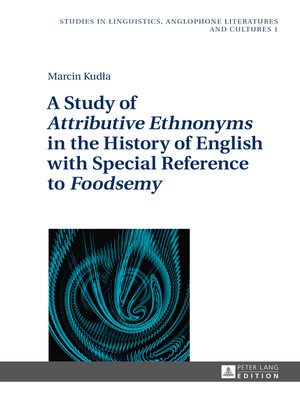A Study of «Attributive Ethnonyms» in the History of English with Special Reference to «Foodsemy»
ebook ∣ Studies In Linguistics, Anglophone Literatures and Cultures
By Robert Kieltyka

Sign up to save your library
With an OverDrive account, you can save your favorite libraries for at-a-glance information about availability. Find out more about OverDrive accounts.
Find this title in Libby, the library reading app by OverDrive.



Search for a digital library with this title
Title found at these libraries:
| Library Name | Distance |
|---|---|
| Loading... |
The author studies ethnic stereotypes in the history of English from the perspective of Cognitive Linguistics. He views an ethnic stereotype as an idealised cognitive model (ICM) which consists of a cluster of metonymic submodels (such as BODY, CUISINE, NAME, etc.). Each submodel may trigger the formation of an attributive ethnonym, which ascribes some attribute to the target group. While such terms are mostly derogatory, context plays a crucial role in their perception. The analysis proper focuses on foodsemic ethnonyms (most of which activate the submodel of CUISINE). Out of 168 items, above 50% follow the «FOODSTUFF FOR ETHNIC GROUP» or «FOODSTUFF EATER FOR ETHNIC GROUP» metonymy. Most examples come from Am.E., with Mexicans being the most frequently described target group.







